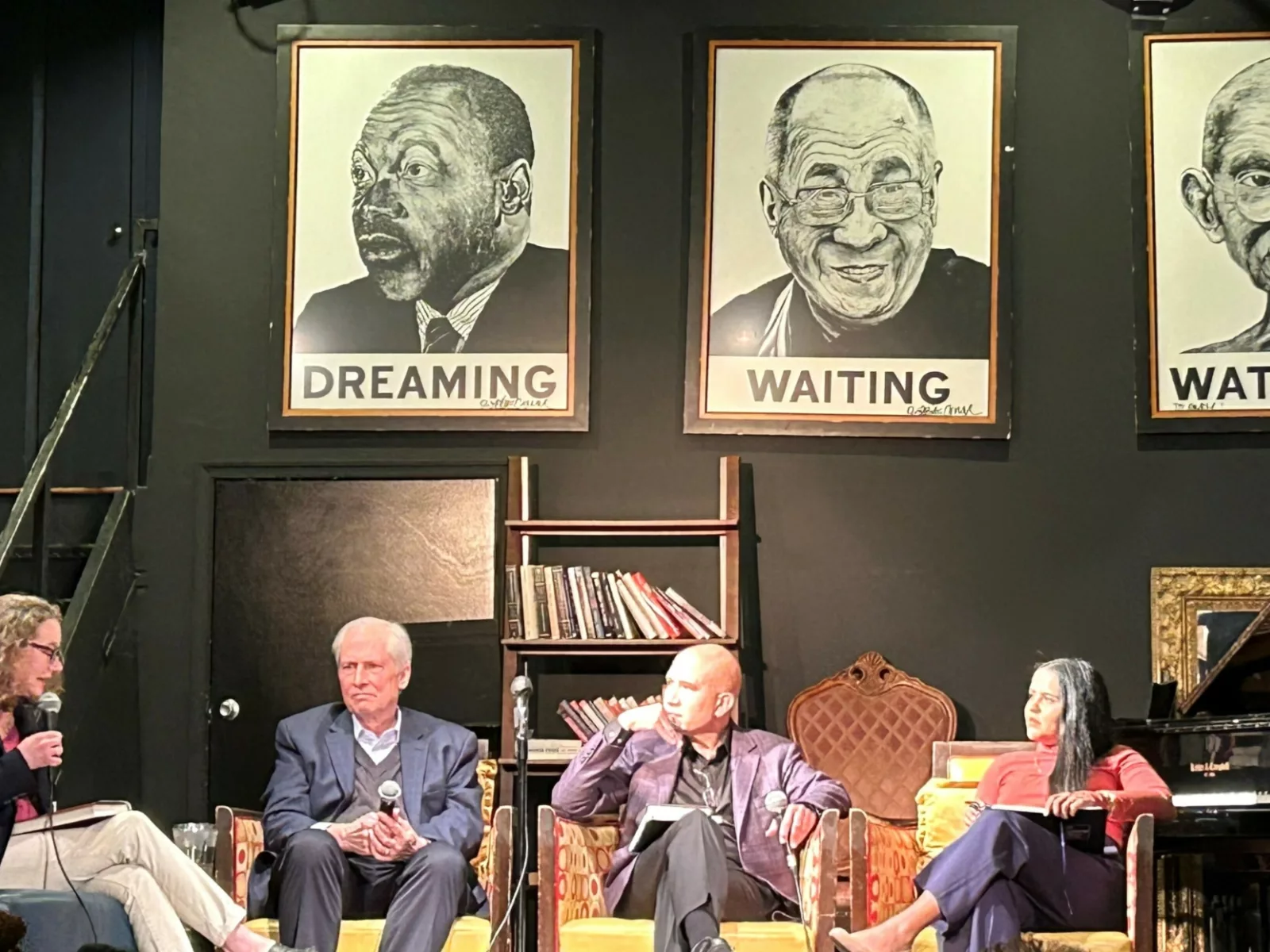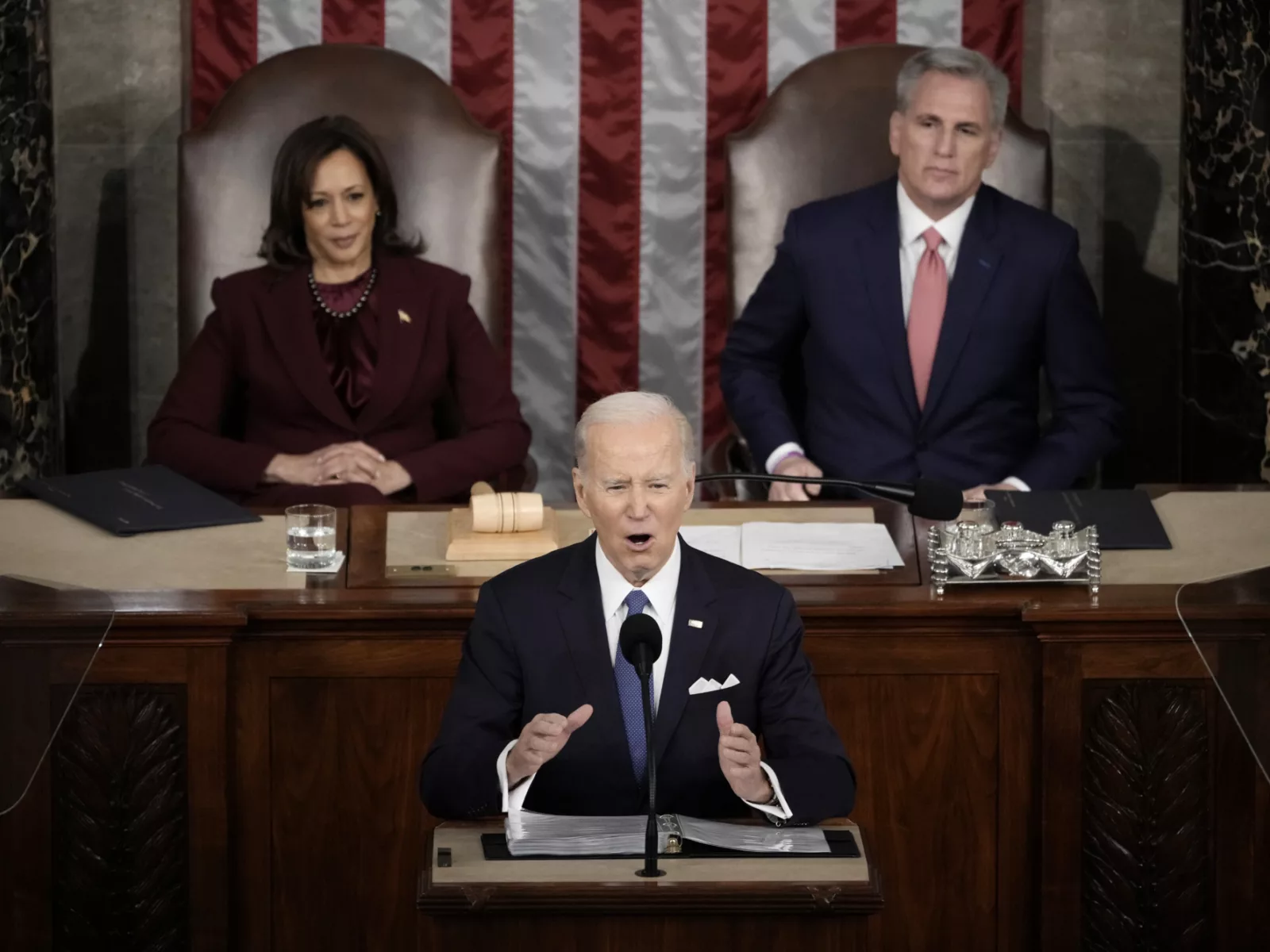Last week, well over 500 people packed the historic Carolina Theater in Durham, North Carolina for the premier of HEART: Serving our Neighbors in Crisis. A collaboration between the City of Durham and the non-profit research organization RTI International, and supported by Arnold Ventures (AV), the new documentary profiles the HEART (Holistic Empathetic Assistance Response Team) program operated by the Durham Community Safety Department (DCSD).
Born out of the racial justice protests in 2020, the HEART program is an attempt to add a missing component to the city’s crisis response system. Augmenting and supporting the city’s traditional first responders – police, firefighters, and EMS – HEART team members are now responding to emergency calls from local community members who are experiencing various types of crises.
Specifically, HEART’s mental health clinicians work in the city’s 911 call center, where they use their expertise to help direct calls appropriately (Crisis Call Diversion). HEART also deploys unarmed, 3‑person “Community Response Teams” (CRT) to non-violent emergency calls. When calls pose a greater safety risk, HEART deploys a co-response team (CoR) and partners a clinician with law enforcement officers. Lastly, HEART’s Care Navigators provide follow up check-ins with neighbors after a crisis call, helping them access community services if needed.
People all over the world have been crying out for an alternate solution than just police, EMS, and fire. This is that something else.Jessica Laube clinician for HEART Crisis Response Team
‘You Can Have Both’
Throughout the event, the active partnership between HEART and law enforcement stood out as a key to the program’s success.
In a panel discussion following the documentary screening, Police Chief Patrice Andrews explained that the program demonstrates that it is possible to have both law enforcement and alternative forms of crisis intervention, and that communities do not have to choose between one or the other.
“We have shown that you can have both and you can be very successful,” Andrews said.
Throughout I documentary and the following panel discussion experts and practitioners explained how this partnership works and has evolved at various levels.
“There are a lot of good officers that are for the work we are doing,” said HEART Co-Response Clinician Kyatta Harvey. “And there were some that weren’t so much, but in doing this work we have grown, and we have shown that this is a partnership. It is impossible for us to do this alone.”
These comments were underscored by vigorous head nodding and applause from the many police officers present in the audience.
At the highest level, Chief Andrews described the relationship that has developed between her and DCSD Director Ryan Smith.
“I trust him, and I trust this team,” she explained.
For his part, Smith stated that he “feels really fortunate that we have such strong support from the leadership of the police department.”
‘Data Is So Central’
Another key feature of the HEART program is its focus on data and building the evidence base. One of the motivations for creating the new program came from an RTI research report, supported by AV, showing that many of Durham’s 911 calls were for nonviolent issues. Building from this original data set, the HEART program meticulously tracks a variety of different metrics on calls, responses, and outcomes via a publicly accessible online dashboard.
The dashboard shows that in the roughly 9‑month period from June 2022 to April 2023, HEART’s CRT program successfully diverted nearly 70% of the calls it responded to away from law enforcement and that the CRT and Co-Response programs both have around a 70% resolution rate. Moreover, in 99% of cases HEART’s responders reported feeling safe.
resolution rate of the HEART CRT program from June 2022 to April 2023
“Data is so central,” DCSD Assistant Director Anise Vance said. “Everything we do, whether it’s how many units we need in the field, what schedules we need to be on, how many people we can possibly serve, what kind of budget ideas we are thinking about, all that is driven by data. Down to the way in which we respond to particular incidents.”
Currently, the HEART program is still in its pilot phase and does not cover the whole city or provide services 24 hours a day, 7 days a week. However, many of those at the documentary premier expressed the belief that the program’s amazing initial success warrants expansion.
“We have laid out different options for expanding HEART based on the data,” Smith told the audience. “Those options have been reviewed by the budget department and they are now being reviewed by the City Manager. […] The Manager will then present her budget to the City Council in May, and that will be the beginning of a [process] of understanding what option is currently being presented […] and a chance for city council to have a conversation about that and then for the public to come into those meetings.”
HEART: Serving Our Neighbors in Crisis
In a new documentary, RTI International highlights the development and implementation of the HEART (Holistic Empathetic Assistance Response Team) program, a new public safety response within the Durham Community Safety Department that connects Durham neighbors to the right care.






















